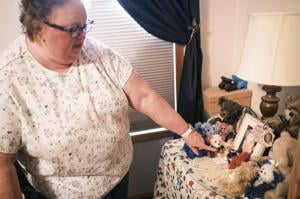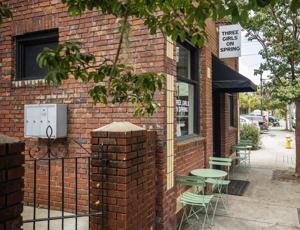MANKATO, Minn. (AP) — Seven tough weeks passed with her husband in the hospital before Nancy Gag Braun found long-term care for him. From 2019 up until that point in 2022, Braun had cared for Steven at their Mankato home.
A traumatic brain injury in February 2019, followed by his progressive dementia, eventually led to the need for professional help and the hospital stay. By then, there were episodes when he didn’t recognize that the woman trying to care for him was his wife. He started showing fear and aggression toward this person he thought was a stranger in his home.

“I knew that wasn’t him; it was the disease,” Braun said. “It was very sad that he had to go through all this.” Not knowing where to turn, she began calling long-term care facilities, one after another.
But his advanced condition made it difficult to secure a spot. She eventually got him in at BridgeWater, a skilled nursing, memory care and assisted living facility in Janesville. While she’s grateful for the care he received there, it wasn’t the long-term stay she expected.
Steven died at the age of 78 on Nov. 23, 2022, six weeks after coming to the facility. But Braun’s scramble to find long-term care for a loved one is an experience shared by many families.
And many of them are unprepared for what can be an emotional, costly and guilt-inducing process. Advance planning helps, but showed most Americans don’t discuss the possibility of long-term care, let alone prepare for it. Braun, a r.























